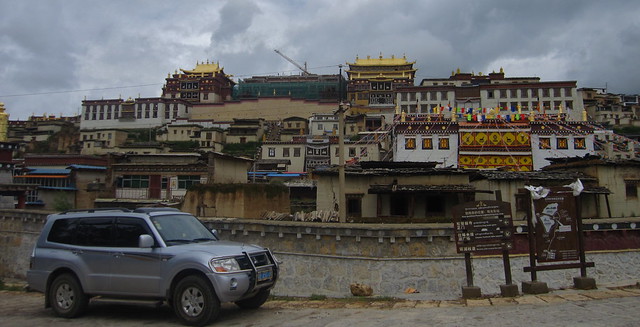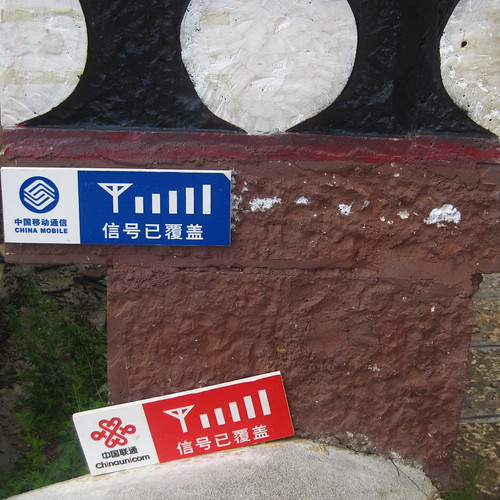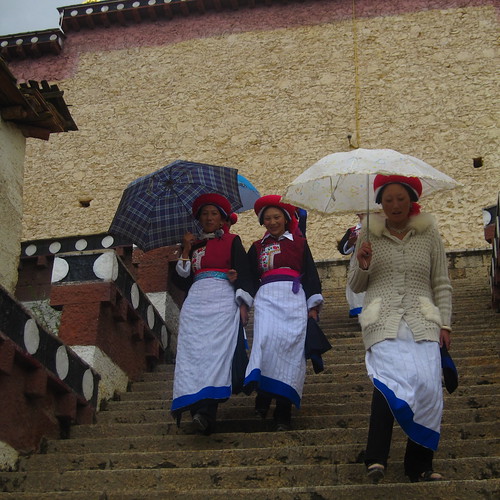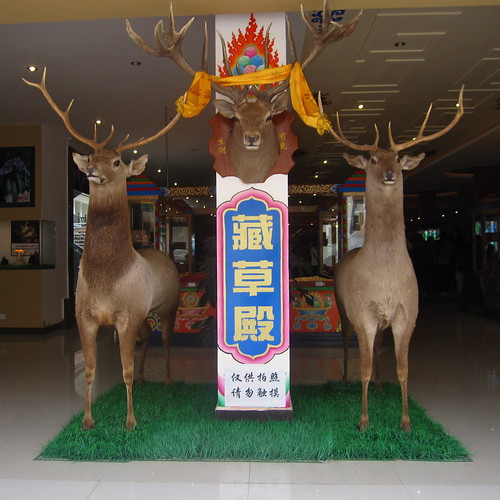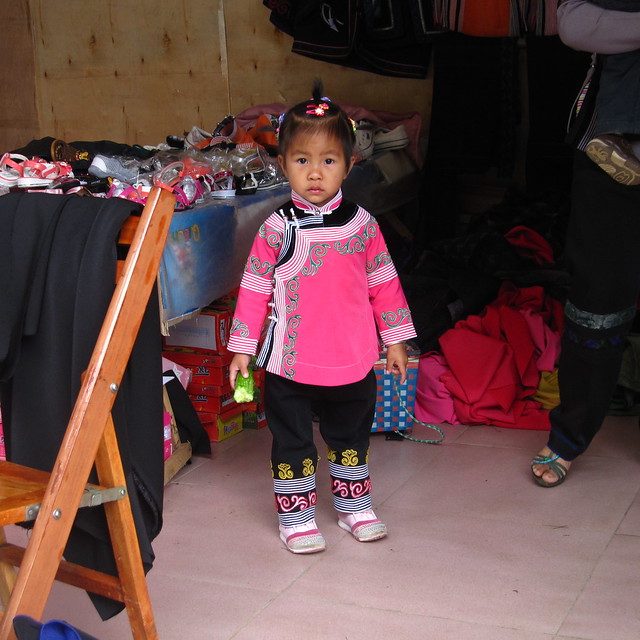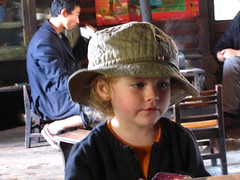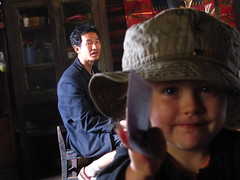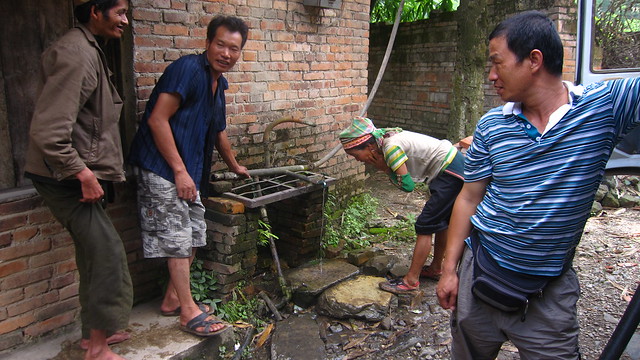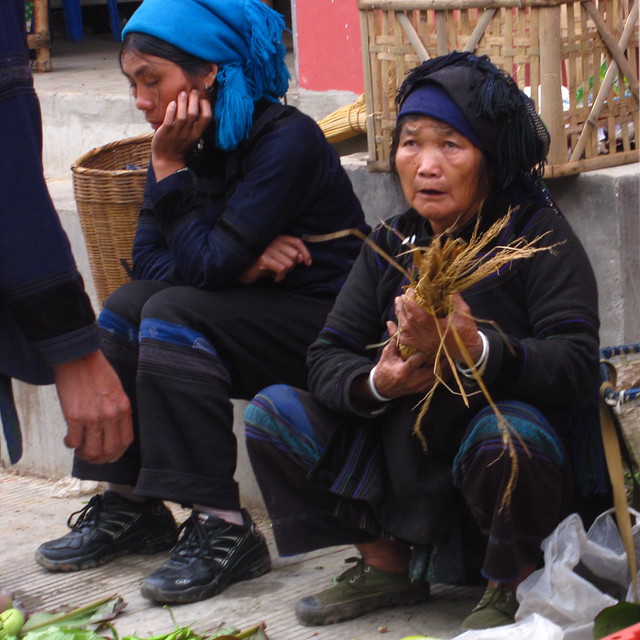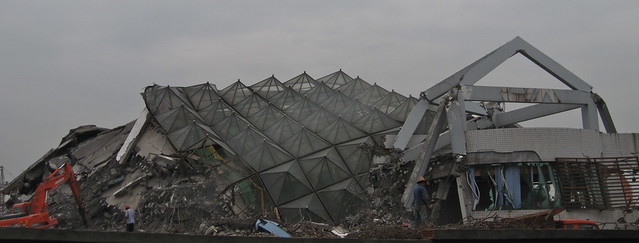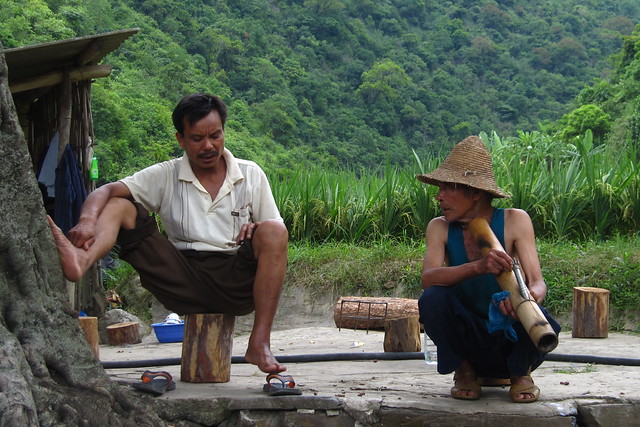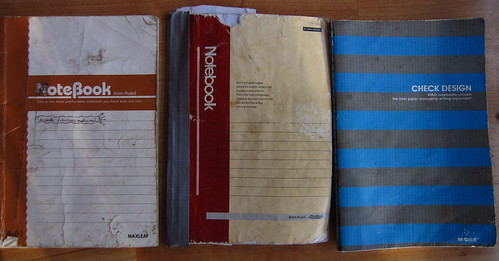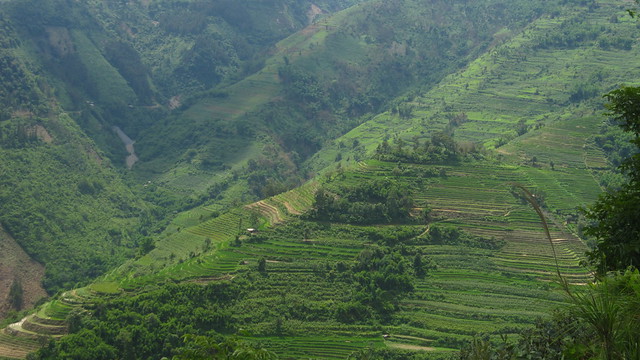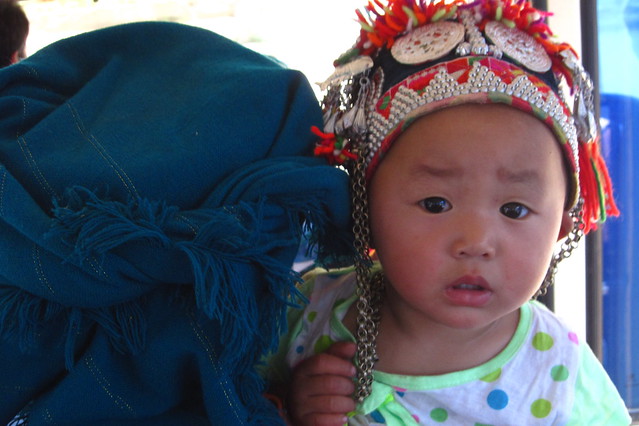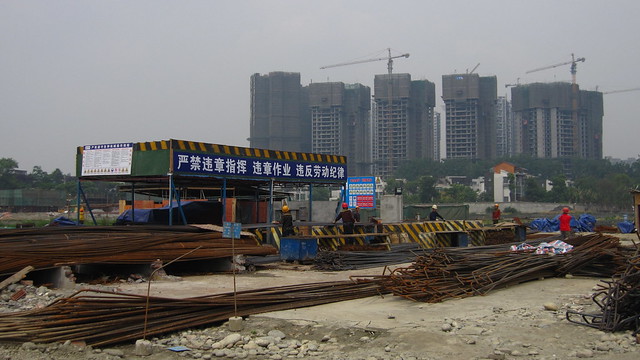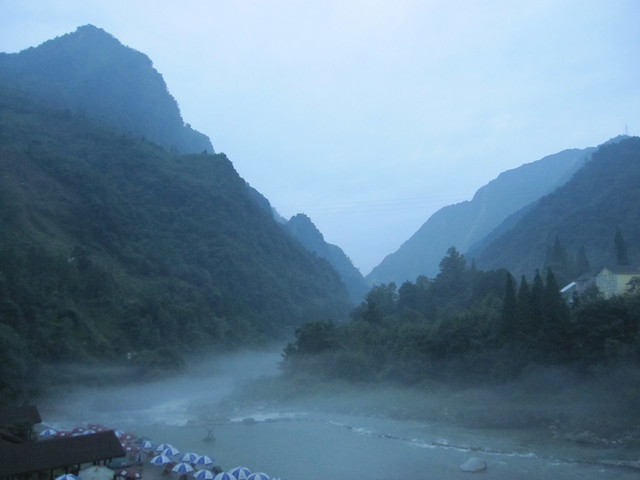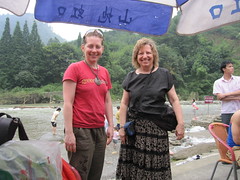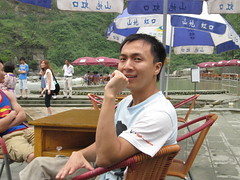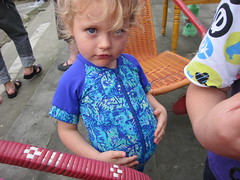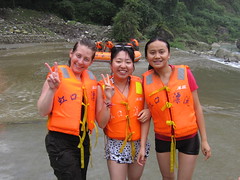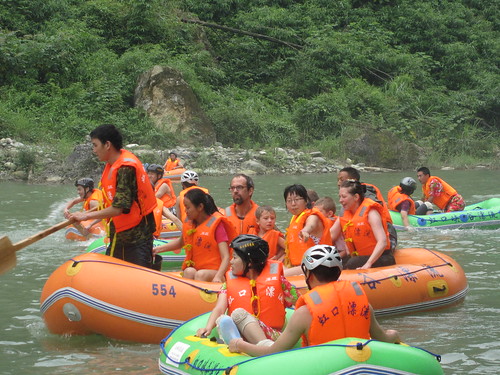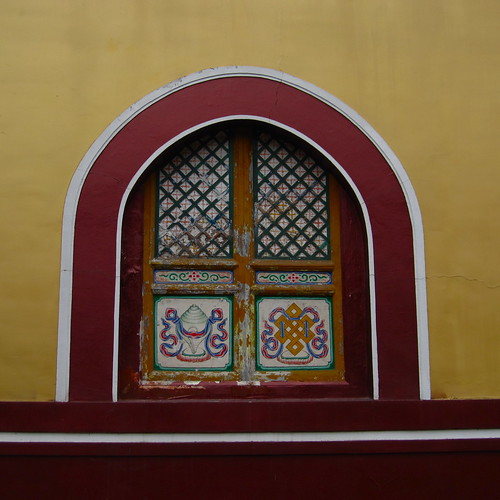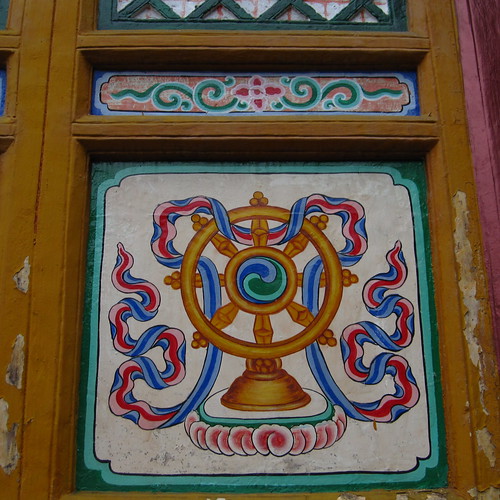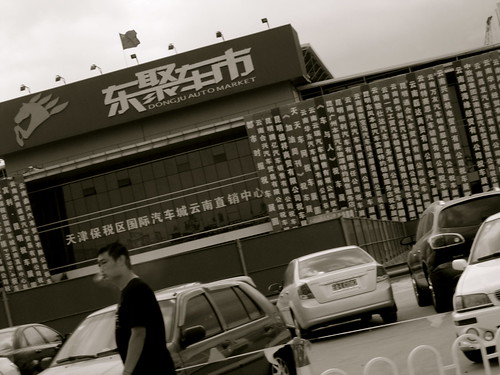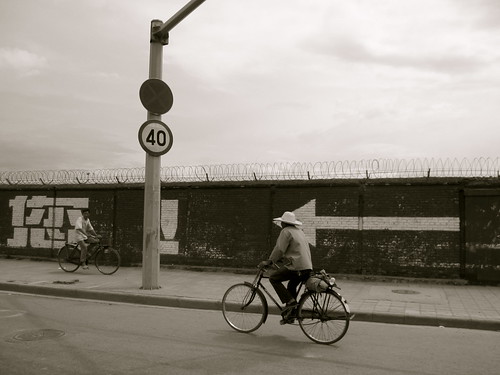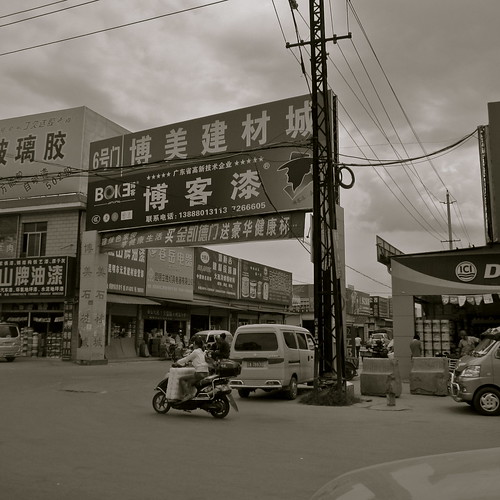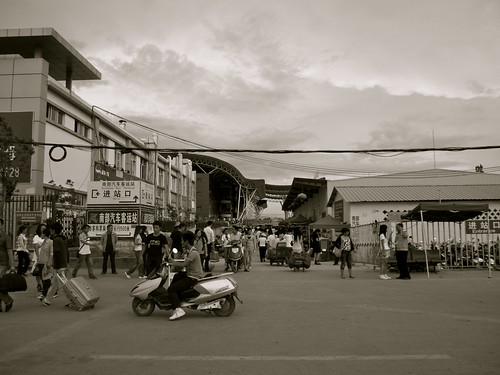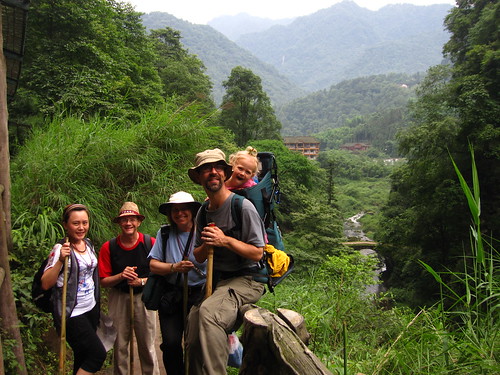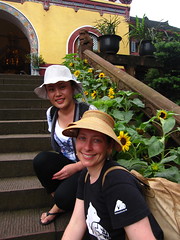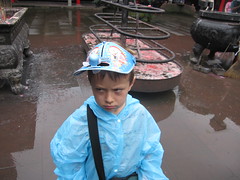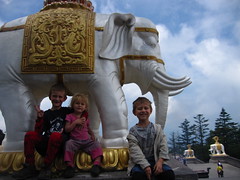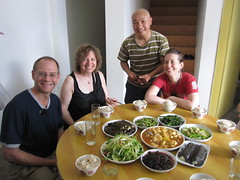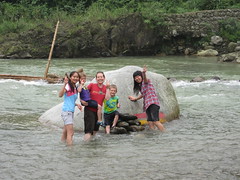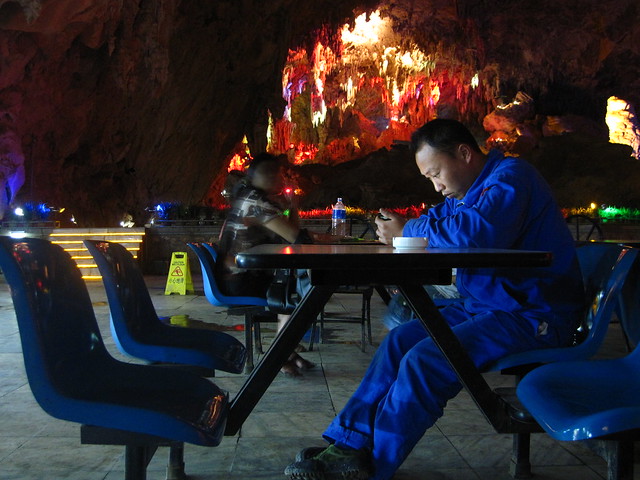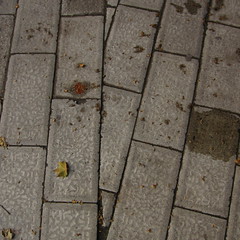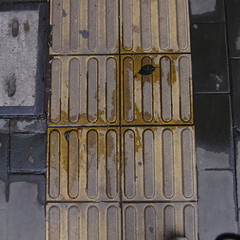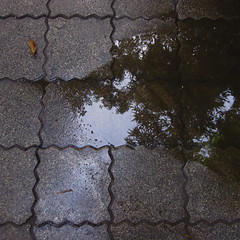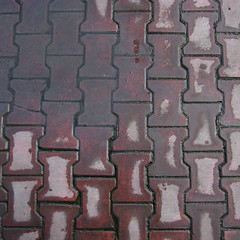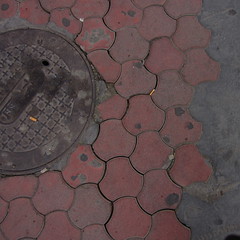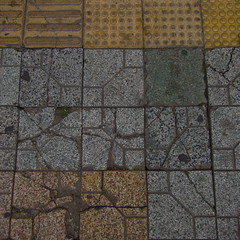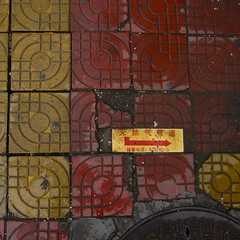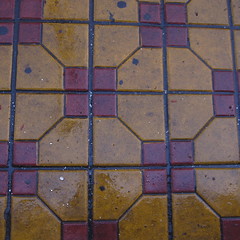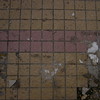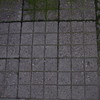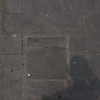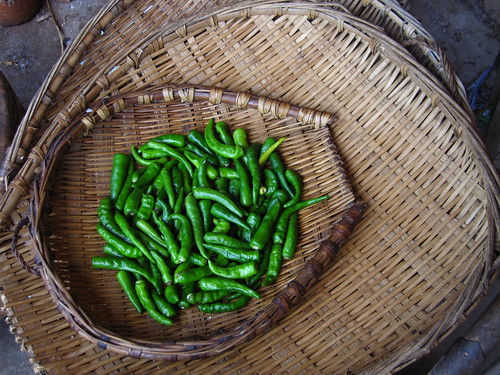
Since I am now officially in the Prime of my Life, (meaning that I had a birthday yesterday and my age is now only divisible by one and itself...) I feel qualified to give you, my appreciative audience, a few tips about how to have a happy birthday in China.
First, some background info: Jane and I finished up with our language training last Friday, and we had the great idea to cap it off with four days' each of individual field study. Meaning, "Hey, let's take our remaining tutoring allowance and go somewhere WITHOUT KIDS
and practice our newly-learned Chinese with people!" "Okay, can I go first?" "No, I wanna!" "No, me...!"
Making a long story short, it was decided that Jane would go off somewhere this week, and, since I have more teaching experience (
Lesson planning? Isn't that what you do in the five minutes that you spend walking to class in the morning?), I would take my time in the week between our end-of-summer teacher training conference and the first week of classes, so that Jane could have time to get her syllabus ready.
Oh, except there was my birthday, which I would be spending alone with the kids. Fortunately, I'm not a big birthday celebrator. Really and truly, August birthdays tend to do that to one. August, that big blank collection of Slow News Days on the calendar. If you were born in August, everybody (including you) is on vacation on your birthday. I had a five-year streak of birthdays where I spent either the night before or the night after sleeping in a tent or in a car eating Pop Tarts, capped off one year by a birthday evening spent in my VW Rabbit outside a truck stop west of Fargo, North Dakota waiting for the muffler repair shop to open the next morning.
But back to China. I was all prepared to have a quiet birthday at home with the kids, maybe watching Toy Story 2 and popping open our preciously guarded box of real Kraft Macaroni and Cheese, but somehow, word got out. First was an invitation from Zekey's best friend's parents (who are quickly becoming our friends) for a birthday dinner. Then came a call from the foreign affairs department, followed by the director of said department dropping off a massive birthday cake, of which more later.
And dinner was excellent! Another expat friend realized at one point that if Chinese people must be horribly disappointed when they visit Americans - everybody here always pulls out all the stops when it comes to hospitality. A small apartment, but pleasantly boisterous (if mostly only vaguely understood) conversation, giggling kids, ten or twelve different dishes all piled onto the table and everyone reaching with expertly extended chopsticks... Ahhh!
I could continue with the play-by-play, but I think I will instead close with a few facts about birthdays in China, should you be fortunate enough to experience one...
Birthday fact number one: If you're the guest of honor at a birthday dinner in China, everyone can "jing" you. This means that they give you a private one-to-one toast, and you both drink your glasses dry. Then the next person comes up, and you drink another glass.
Birthday fact number two: I'm really glad we were all drinking beer instead of baijiu (the local white lightning in these parts), and I'm reeeallly reeeeallly glad I didn't have twenty people show up to this dinner.
Birthday fact number three: Was that "jing"? Or maybe "jie". Which tone were they using? "Qing"? No that means invite. "Jiang...?" Is this a
real Chinese tradition...?
Birthday fact number four: After birthday toasts, glancing at the television and seeing a cartoon wolf turn into a part sea turtle and dive underwater after a snorkeling sheep with what looks the scary trees from the Wizard of Oz in the background is not surprising in the least.
Birthday fact number five: Ditto the game show in which contestants have to jump from a revolving platform onto a series of giant inflatable mushrooms. In a swimming pool. In front of a building that looks a bit like a Motel 6...
Birthday fact number six: If you leave a birthday cake on the floor in a Chinese apartment for any length of time, it will attract a visitor or two. Or twenty.
Birthday fact number seven: Nothing sobers you up quite like opening a cake box lid to see a birthday cake swarming with ants. Okay, "swarming with" in this case means about twenty. But still... Fortunately, everyone else will take this in stride, and kids love to play "pick the ant off the frosting".
Birthday fact number eight: Any remaining tipsiness is quickly dispelled by the fact that you've got to escort your three sugar-crazed happy hyper kids back home across a dark campus an hour past their bedtime. Ah, the double-edged sword of spongy Chinese birthday cakes - great at winding up the kids, but worth it ounce for ounce in its ability to soak up excess alcohol...
